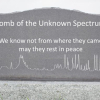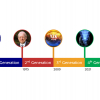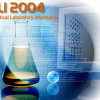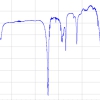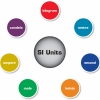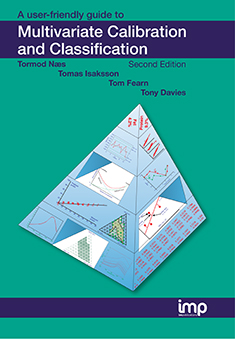Antony N. Daviesa,b and Henk-Jan van Manenb
aSERC, Sustainable Environment Research Centre, Faculty of Computing, Engineering and Science, University of South Wales, UK
bExpert Capability Group – Measurement and Analytical Science, Nouryon Chemicals BV, Deventer, the Netherlands
With a significant proportion of our regular readership probably under home lock-down, we were wondering if we could help you at this difficult time by pointing out some useful online resources. So, when we finally come out of this pandemic, you could do so better skilled and more up-to-date than when we went in to it. Indeed, it is extremely rare in our modern lives that we get the chance to sit back and reflect on what we can be doing better, more efficiently and more collaboratively. Take the opportunity to download and test out some of the free versions of innovative data processing and reporting software that is available. There are also numerous very informative video tutorials available around new instruments and accessories, so go explore. This column will point you at a few resources you might like to use to start off. If you find some great resource yourself or feel we have overlooked something you yourself have put online, please let us know (and/or use the online commenting facility) and we will look to publicise the resource.
As many of us are home… let us start there
At https://www.spectroscopyeurope.com, Ian and the team have brought together articles, news, product information and events together by technique area.
While it can never be definitive, you might find some interesting leads to follow by looking at activities in techniques you currently don’t have in your own laboratory. The content is a useful mix of high-level introductory content down to detailed discussions of specific research results in targeted problem areas—so something for most tastes.
With the demise of other sites integrating information across multiple vendors, this is a good starting point. The majority of instrument and software vendor websites unfortunately are now focussing more and more on promoting their specific products rather than helping potential new customers in understanding the various techniques in general.
It is worth looking for general interest areas within the offerings of the scientific publishers. One example from Wiley is the Essential Knowledge Briefings—a resource I must admit I had never heard of before, and these are quite nice relatively short summaries of different techniques with examples of their application which can be downloaded not only as PDFs but also in Kindle and Apple device formats for different eReaders (https://www.essentialknowledgebriefings.com). One little warning: if you are searching for articles you might like to read, be aware that the pre-defined filters under the box “Specialties” are a little arbitrary (Figure 1). Raman Microscopy is under the categories Imaging, Microscopy and Spectroscopy, which is fine, but the Dynamic Secondary Ion Mass Spectrometry briefing I wanted to read was only in Microscopy! What is very nice to see is that the reference lists for further reading with each briefing are not restricted to Wiley publications.
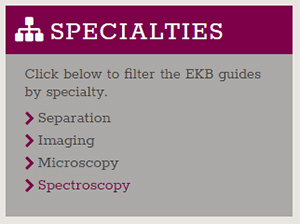
Figure 1. Preconfigured “Specialties” filters on the Wiley Knowledge Briefings site—make sure you use with care.
Instrument vendor resources
One of the instrument vendor websites which includes non-product specific training videos from basics to more advanced applications is hosted by Thermo Fisher Scientific (https://www.thermofisher.com/uk/en/home/industrial/spectroscopy-elemental-isotope-analysis/spectroscopy-elemental-isotope-analysis-learning-center.html). It also does not require you register to access the content.
Their Spectroscopy, Elemental & Isotope Analysis Learning Center includes their Academy sections of introductory videos and webinars going right back to the first principles and explanation of the terms used without overloading the viewer with sales pitches for their products. Obviously as you move to more detailed webinars, such as the webinar on the Near Infrared Analysis of Biofuels for example, you will encounter more product-focused content. However, this is well mixed in with a good discussion of the benefits of the technique as a whole in this application area against other analytical approaches and as such is quite educational. The lessons you will learn are then equally applicable to a range of product solutions from other vendors.
For educators, there are also resources available in the Chemistry in the Classroom Resource Center with several pre-planned lessons and lab experiments. The individual links there lead to content ranging from simple single experiments to full multiple-experiment course plans or quite involved sample preparation, extraction and measurement practicals.
Agilent also hosts a vast amount of content within the Agilent University (https://inter.viewcentral.com/events/cust/catalog2.aspx?cid=agilent&pid=1&lid=1). Unfortunately, Agilent still require a lengthy personal registration process be completed to access any of this content and it appears that some of the content hides behind a pay-wall. If you persist and register yourself, then there is some very interesting educational content, although it does take some finding. Don’t forget to tick on the “remember me” box or you will be forced to fill in all your details for every single content access.
Agilent’s approach is different to Thermo’s in the way the content is built with almost a complete dump of all their resources: generic information presentations as well as very targeted highly specific instrument operation training in one location. Before you give up in despair, you need to use the filters on the left-hand side of the screen, which are very useful in firstly filtering on “free” content and then drilling down to those subject areas you are actually interest in, rather than scrolling through pages and pages of links, see Figure 2.
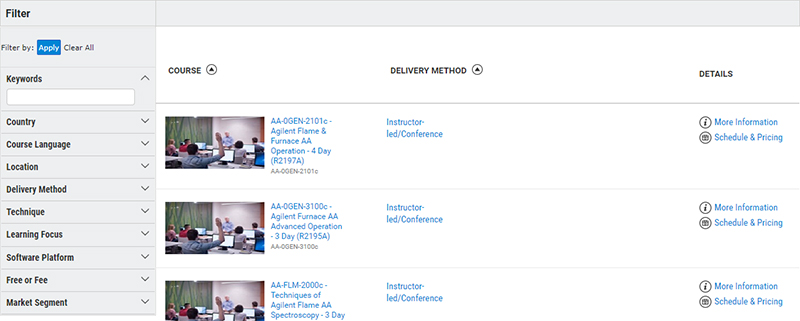
Figure 2. Agilent University webinars: use the Filter function on the left side to simplify identifying interesting content.
Once you have mastered their search strategy, there is some excellent content, such as a long and detailed webinar on troubleshooting GC separation: very helpful for the large number of us with GC-MS systems delivering huge numbers of analyses. There is also content on the main Agilent website (https://www.agilent.com/en/training-events/eseminars). This is a different domain and your stored login information from the “University” won’t be recognized, so you will have to repeat the process here. The content is made available in different ways, so for some content it is not possible to run the training in full-screen mode… for others the installation of, for example, the Cisco WebEx browser extension plug-in will be required. Try also https://www.agilent.com/en/training-events/eseminars as a route in, where you will get a list of future live webinars you can sign up for as well as access to the large library of recordings.
Bruker as you would expect also makes a lot of information available that you can benefit from looking at during your enforced absence from normal working practices (for example, https://www.bruker.com/se/service/education-training/webinars/optical-spectroscopy.html). Here I was rather confused by the “register to order” the webinar link for the recording I wanted to view. I then received an email confirming that I had requested the webinar. The reason appears to be the age of the webinar I was interested in viewing. Bruker makes use of YouTube to host their more recent webinars and if you follow the links they provide, this content is (obviously) available without the need to register. There are also some webinars hosted directly on Bruker.com. One drawback I found was that accessing their site, similarly to Agilent, initially presents content in a multitude of languages not making use of my browser’s language settings. Automatically filtering in this way would be useful to control the amount of content initially presented to the user.
Now please don’t just stick to the big multi-national vendors, there is plenty of very good educational content made available by the more specialist instrument manufacturers and software vendors; these smaller vendors have a tendency to keep their content more up to date.
Download and try-out
So now you are overwhelmed with on-line training, let’s move to an area where you can take what you learn and potentially improve the working environment for you and your colleagues when the world returns to normal. There are several vendors who allow you access to fully functioning copies of their software on a trial basis. This is a very generous offer, which I think you probably now have time to make the most of. I am sure that many of you have had the experience of being given a fantastic demonstration of a software product by an experienced sales person or software engineer, only later finding out that the operations you were shown only really worked on the test data provided by the vendor or the specific operations demonstrated in a predefined order they were shown.
Mestrelab Research, for example, will allow you to install a fully functioning version of their Mnova data processing suite (https://mestrelab.com/software/mnova/) for you to test as you wish. There are some very helpful videos supporting the functionality you will be trying out. Finally, are you bored of up-skilling yourself on your own? Have you been forced by COVID-19 to realise that your collaborative environments are well short of what they need to be? Are you still having to use that old USB stick to get data off your spectrometer… oh dear! You could look at another Mestrelabs fully functioning trial, of their cloud-based electronic laboratory notebook solution Mbook. This has a free 45-day license and the capability of adding your co-workers into your test environment for a more realistic exploration. Once you have completed the registration, you will have a short wait for the environment to be set up after which you will be ready to enroll your colleagues for a truly collaborative trial—maybe role-playing different positions within your organisation.
Now there are many other vendors with trial or cut-down versions of their software available for free for you to install and test now, but this column certainly doesn’t have the space to list them all. So, as mentioned above, if you find something you would like to recommend to others or have content that fits the criteria we are trying to use in this column then please get in touch.
Learn a new skill
Design of Experiments
Those who know me well will never forgive me if I didn’t use this opportunity to suggest that you should also use the available time to look to getting some training in skills that will make you—whether academic or industrial spectroscopist—better at delivering your daily workload when the world gets back to normal. One area I have been preaching about has been the wider use of Experimental Design or Design of Experiments (DoE). You might be working on anything from driving efficiency in a multi-million euro chemical plant or finding the best settings for a new analytical method—adopting the DoE approach will enable you to deliver more robust solutions faster than if you attempt to carry out the work the old-fashioned way optimising one factor at a time. There are several strong vendors in this field, but I have been looking at Design Expert by StatEase, as our University has recently deployed it along with the chemometrics package Unscrambler from Camo AS. With our PhD students in lockdown, I have been suggesting they try out the freely available DoE training available from StatEase. As with other vendors they offer extensive paid training courses, but what caught my eye was some freely available training in what they call the Stat-Ease Academy (eLearning) (https://www.statease.com/training/academy/). Having signed up, the training starts off with a short (if embarrassing) test on your level of basic statistics knowledge. Going on at a nice slow pace you can take the PreDOE: Basic Statistics for Experimenters course which might be a little basic for some of you. However, it does provide some essential explanation of terms that you will use later in the courses.
If you want to try out the concepts as you go along and don’t have access to the DesignExpert package, you can download a fully functional version of the package on a one-month temporary license to play with.
Project management
I would also like to take the opportunity to push for better Project Management skills, especially for those who do not primarily see themselves as project managers in the classical sense (i.e. spectroscopists!). For those working in research, development or any environment that involves change, having a basic understand of good project management techniques can certainly make your life simpler and more efficient. An additional benefit of learning to structure your projects well is the removal of any sort of blame culture when issues arise around delivery. Documenting the aims of a project at the beginning and having them signed off by your management against planned costs and timelines with milestones, binds all levels of stakeholders into a transparent team with clear roles and responsibilities and targets on delivery.
We successfully trained over 60 scientists, engineers and support staff in different levels of project management over a three-year period resulting in significant improvements in the planning, execution, documentation, quality and timely closure of their project work. We chose to standardise on the PRINCE2 Project Management qualifications (PRojects IN Controlled Environments https://www.axelos.com/best-practice-solutions/prince2) as PRINCE2 is very flexible and scalable, allowing the methodology to be tailored to meet our differing internal project demands. At the start, we focussed on classroom delivery style, as many of the concepts were new to the teams so the ability to question and discuss in the formal sessions and outside the structured delivery was important. However, more recently, and perhaps more relevant to this column, was the move to online delivery for the initial Foundation level qualification allowing colleagues to study at their own speeds.
Now if you want to obtain the official PRINCE2 certification, as we wanted for all our staff as part of their continuing professional development, you will need to get your boss to agree this is a useful use of your time stuck at home and pay for the course and examination fee. There are several online course providers so I won’t go out on a limb to recommend any specific vendor and they will vary depending on where you are located. Regardless of the provider you select, the examinations are all centralised to ensure quality and conformity.
Conclusion
There is far too much content to list everything here, but please think a little out of the box when looking for educational material to make good the time you must spend at home in the coming months. Self-discipline will help in ensuring that when you are finally allowed back into a normal working rhythm you are still useful to your colleagues. Being self-critical or being honest about the strengths and weaknesses of one technique or another is quite rare in our field. One final recommendation could be the Metrohm webinars: https://www.metrohm.com/en-gb/support-and-service/webinar-center/ where (once they came back online) it was refreshing to see the speakers in the NIR spectroscopy webinar I watched actually going into details of when the technique they were “selling” was weak and should not be used. Nice work! Talking of NIR spectroscopy, seven of the series of ICNIRS conference proceedings are freely available at https://www.impopen.com/nir-proceedings ranging from 1995 to 2017.





